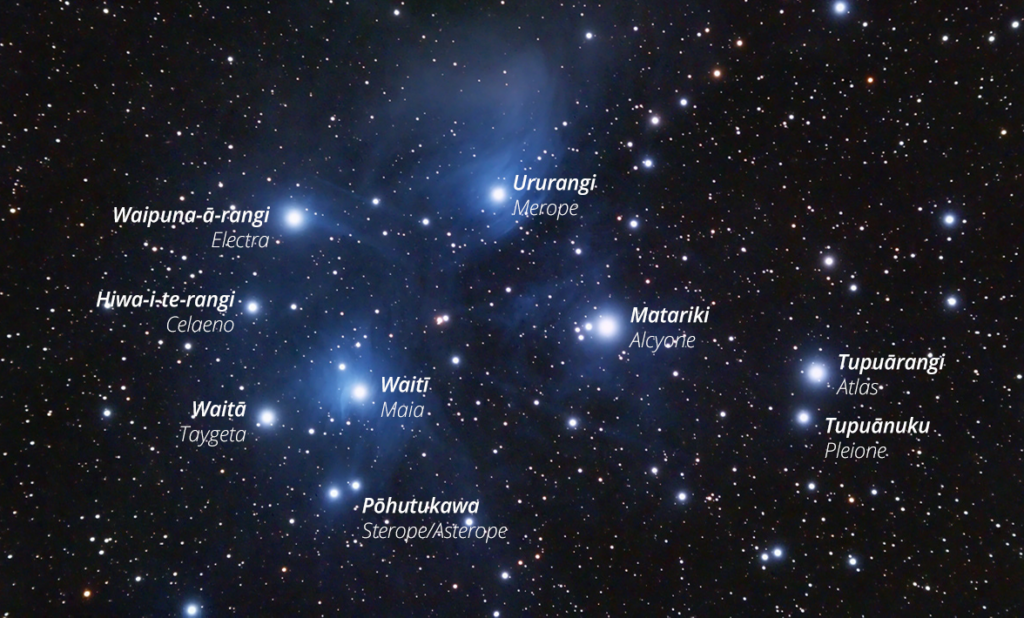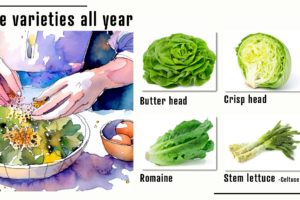
The Significance of Matariki for Gardening: Embracing Tradition and Practical Insights
Matariki, the Māori New Year, is a time of renewal and celebration in New Zealand, marked by the rising of the Matariki star cluster. This celestial event holds significant cultural, spiritual, and practical importance, especially in the realm of gardening. As we explore the significance of Matariki for gardening, we’ll uncover how this tradition offers valuable insights for contemporary horticulture.
Understanding Matariki
Matariki often called the Māori New Year, is when the Pleiades star cluster reappears in the winter sky. This event traditionally is a time for remembering the past, celebrating the present, and planning for the future. For gardeners, Matariki is particularly meaningful as it provides a natural calendar that guides planting and harvesting activities.
Tupuānuku (Pleione) is the star connected to anything within the soil. This star also represents geographical features such as mountains, plains, and valleys. She is associated with the food grown in the ground, both cultivated (ie grown in gardens) and uncultivated. Tupuānuku is comprised of two words: ‘tupu’ which can mean ‘new shoot’ or ‘to grow’, and ‘nuku’, an abbreviation of ‘Papatūānuku’ (Earth mother). Tupuānuku resides in the domain of Rongo-mā-Tāne, the atua of agriculture.
Tāne (atua of the forest) created the first woman, Hineahuone, from clay (her name means ‘earth-formed woman’) (Hutchings et al, 2018). Her source (clay) highlights the importance of soil and the connection between soil and people. This connection is also seen in the Māori language (te reo Māori), where the word ‘whenua’ means both ‘land’ and ‘placenta’. The whenua or placenta is often buried at a significant place such as a marae, acknowledging the intimate spiritual and physical connection between land and people (Harmsworth & Awatere, 2013).
For some Māori, soil health is reflected in its capacity as a living ecosystem to sustain and support all life, including microbes, plants, animals, and humans (Hutchings et al, 2018). Soil is the ancestor of our food (kai) and affects our well-being as consumers (Hutchings et al, 2020). This means soil requires special attention. Instead of viewing soil as a commodity, we can understand it as a living entity and enhance its mauri by protecting and growing its microbial diversity and structure (Hutchings et al, 2018)

Practical Gardening Insights During Matariki
Planning the Gardening Season
Matariki marks a time for reflection and planning. According to Māori tradition, the appearance of the Matariki stars is a signal to start preparing for the upcoming planting season, which typically begins in the spring. As horticulturist and Māori elder Joe McLeod explains, “Matariki is a time to celebrate the harvest that has just been collected and to start planning and preparing for the new planting season”【source】.
Soil Preparation
The period of Matariki is ideal for soil preparation. This involves enriching the soil with compost and natural fertilizers to ensure it is fertile for the upcoming planting season. Gardening expert Sarah O’Neil advises, “Use this time to dig in compost and organic matter to improve soil structure and fertility, setting the stage for a bountiful garden”【source】.
Caring for Perennials and Winter Crops
During Matariki, attention can be given to winter crops and perennials. These plants require maintenance such as pruning, mulching, and protection from frost. This ensures they remain healthy and productive. “Winter is a critical time for maintaining perennials and ensuring that winter crops are protected and nourished,” says garden expert Jane McLean【source】.
Community and Sharing
Matariki is also a time for community gatherings and sharing knowledge. Gardeners often come together to share seeds, seedlings, and gardening tips. This communal approach helps preserve traditional knowledge and fosters a sense of unity and collective effort. As noted by community gardener Marama Davidson, “Sharing seeds and knowledge during Matariki strengthens our connections and ensures the survival of traditional gardening practices”【source】.
References and Further Reading
- McLeod, Joe. “The Significance of Matariki in Māori Culture.” Te Ara – The Encyclopedia of New Zealand, 2023.
- O’Neil, Sarah. Gardening with Matariki: A Practical Guide. Wellington: New Zealand Gardener Publishing, 2022.
- McLean, Jane. “Winter Gardening and Its Benefits.” Organic Gardener, June 2023.
- Davidson, Marama. “Community Gardening and Matariki.” New Zealand Community Garden Journal, Winter 2023.
Embracing Matariki in Your Garden
Embracing Matariki in your garden is not only about following traditional practices but also about fostering a deeper connection with the natural world. By aligning gardening activities with the cycles of nature, we can create more sustainable and productive gardens. As we celebrate Matariki, let us honour the wisdom of the past while nurturing the gardens of the future. One way to do this is to celebrate with the food you have grown yourself or to buy foods that are in season locally.
Matariki provides a unique opportunity to reflect, plan, and engage with our gardens in a meaningful way. By integrating the practical insights and traditional wisdom associated with Matariki, gardeners can enjoy a more harmonious and fruitful gardening experience. Happy gardening and Matariki blessings to all!
Conclusion
Incorporating the principles of Matariki into your gardening practices can bring a sense of tradition and natural harmony to your horticultural efforts. As we observe Matariki, let’s remember to honour the past, celebrate the present, and plan for a bountiful future. Whether you are a seasoned gardener or just starting, the wisdom of Matariki can guide you towards a more sustainable and rewarding gardening journey.
Sources:
- Te Ara – The Encyclopedia of New Zealand
- New Zealand Gardener Publishing
- Organic Gardener
- New Zealand Community Garden Journal
- Ministry for the Environment. (2022). Tupuānuku: Our soils and food grown in the earth. Environment Aotearoa 2022.
Feel free to share your experiences and tips on gardening during Matariki in the comments below. Let’s grow together in harmony with nature!
Tag:gardening, maramataka, matariki



